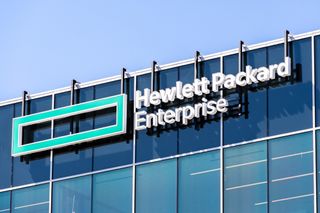How HPE helped Dropbox leave AWS servers to build its own
HPE and Dropbox are now using each other's services, and targeting enterprise users together

Hewlett Packard Enterprise (HPE) helped Dropbox migrate away from Amazon Web Services (AWS) by helping the collaboration firm build its own datacentres.
HPE worked with Dropbox to build custom hardware as Dropbox decided that with 500 million users, it has grown big enough to benefit from running its own hardware, the parties confirmed in a blog post.
Thomas Hansen, global vice president of revenue at Dropbox, said that the Magic Pocket infrastructure project, the one which migrated data from AWS to Dropbox’s own infrastructure, would not have succeeded without HPE and other providers' technical abilities.
"Our relationship with HPE is a great story on many levels," he said. "We share a commitment to technical excellence and rapid innovation. Our own Magic Pocket infrastructure project—the biggest bet in our company’s history—would not have paid off without HPE’s and a few other strategic partners’ ability to deliver on our server specifications."
Back in March, Hansen revealed 90 per cent of users' data sits on its own custom-built infrastructure.
"We were an early adopter of Amazon S3, which provided us with the ability to scale our operations rapidly and reliably. Amazon Web Services has, and continues to be, an invaluable partner—we couldn’t have grown as fast as we did without a service like AWS," he said at the time.
But explaining Dropbox stores both file content and metadata, he added: "Bringing storage in-house allows us to customize the entire stack end-to-end and improve performance for our particular use case. Second, as one of the world’s leading providers of cloud services, our use case for block storage is unique. We can leverage our scale and particular use case to customize both the hardware and software, resulting in better unit economics."
Cloud Pro Newsletter
Stay up to date with the latest news and analysis from the world of cloud computing with our twice-weekly newsletter
The HPE hybrid cloud meant that migration involving hundreds of petabytes of data could be transferred “with nobody noticing”, Dropbox founder and CEO Drew Houston said recently on stage with HPE CEO Meg Whitman.
He said the swap over from AWS to its own infrastructure was like “trying to swap out the engines on a jet mid-flight without any of our customers-passengers knowing”.
However, he added he was “really proud of the results", also noting that "it has made a huge difference and given us a major competitive advantage".
This week, Hansen claimed HPE and Dropbox's new business relationship is a "winning combination" for the enterprise.
HPE, which has signed up to use Dropbox's cloud services, will act as a reseller for the collaboration firm, pitching Dropbox alongside its own products to customers.
Hansen said: “Together, we make the leap to cloud easy and secure for CIOs around the globe. We are pleased to have HPE as a reseller partner to better serve large companies through our channel partnership. We will also offer additional data security and discoverability features through our product integrations with HPE. We help each other deliver value to our customers, and make it easy and secure to be what’s next."
HPE CEO Meg Whitman said in a keynote speech at HPE Discover that Dropbox has also signed up to use HPE Proliant and Cloudline servers, financed by HPE Financial Services. While the terms of the deal were not disclosed, the Wall Street Journal said that Dropbox “drove a hard bargain” to get costs down. The servers were modified to suit Dropbox’s needs.
Houston, who shared the stage with Whitman, said the move to hybrid was motivated by the "performance, the flexibility and, most importantly, the security" his firm could get from HPE hybrid cloud.
Rene Millman is a freelance writer and broadcaster who covers cybersecurity, AI, IoT, and the cloud. He also works as a contributing analyst at GigaOm and has previously worked as an analyst for Gartner covering the infrastructure market. He has made numerous television appearances to give his views and expertise on technology trends and companies that affect and shape our lives. You can follow Rene Millman on Twitter.





